Description
Small in size but packed with advice!
Even the smallest drama group needs someone to be in charge of details, and this person SHOULD NOT be the director.
DramaShare’s
STAGE MANAGER’S MANUAL
Sample of what you will find in this very useful manual
Who is the stage manager and what does s/he do?
What happens and when?
Rehearsal Reports
Performance Reports
Stage Manager Checklist
Crew Evaluation
Production Meeting Notes
(even) Costume Repair Reports
AND much more
Sample:
Having someone to serve as a stage manager is almost mandatory. The job of stage manager is hard. It is one of the most time consuming and important positions in drama, either in church or in the theatre. As stage manager, you will hear all the complaints, have to deal with all the problems, receive the blame for everything that goes wrong, and typically receive little of the glory. The stage manager is frequently forgotten, until something goes wrong, then everybody is looking for you. Yet, with all of this, the position of the stage manager is one of the most important and rewarding in the theatre.
As stage manager you will have generally begun work long before rehearsals ever begin, and more than likely will be the last person out of the theatre on closing night. In between those times, you are the lifeline, the communications hub for the entire production team and the performance ensemble. Organization is your key to success and the success of the production. This is a guideline for assisting you in your job of stage manager. These are only guides and are not intended to be “rules” for stage-managing. If you have a way of working that is more practical for you, by all means use it. Remember, keep track and make lists, if you don’t write it down, it didn’t happen, and worse yet, more than likely won’t happen.
Now, let’s take a look at some characteristics, attributes and responsibilities.
CHARACTERISTICS OF A GOOD STAGE MANAGER
1. First and foremost, you must be willing to accept responsibility. Although the Director is in charge, a very large amount of the responsibility for the smooth running of the rehearsal process and the production run is on your shoulders. Above all, delegate. Have able assistants, train them and use them. You cannot be everywhere that everyone wants or “needs” you to be.
2. Be organized, efficient, and observant. There will be, or should be paperwork, and always have it ready. There will be scripts, and notices, and forms, etc. Props will need to located and gathered, rehearsals and meetings organized, and something is always about to happen, so be ready. Be aware that problems are imminent, recognize them, address them, adapt to the necessary changes quickly, and overcome them.
3. Maintain a professional attitude at all times. Under stress, it must never get personal. You are going to be in on to many discussions that are not for the general cast and crew. You are going to hear all the negatives and the positives, and all the “we may have to do’s”, which are often just thoughts and preparing for alternative solutions to personnel problems or the like. Keep it to yourself.
4. You must be dependable. Always take responsibility for the production, always be early for any call, always be ready for the unexpected, and always be ready for what is to happen next.
5. Keep your cool, and try your dead level best to never lose your temper, especially in front of the cast. Remember to always add “please” and “thank-you” to everything you do and say.
WHAT HAPPENS AND WHEN – A CHECKLIST OF TASKS
_____Script – Your first responsibility upon receiving a stage managing assignment is to obtain a copy of the script. You will need to read and learn all the cues and technical aspects of it. The rest will be determined with the Director and the Technical Director. I suggest using the color coding scheme for changes, keeping it the same in the Prompt Book. Typically the color order per change is, blue, pink, yellow, green, goldenrod, salmon, cherry (red), buff, and tan. So if you have a pink page in your script, and everyone else has green, you know you don’t have the latest changes. I like to do this rather than have everyone say, let’s just mark it out and make the change. Give out a new change color, because the technical crew probably didn’t pay attention to the cast’s change of , say, wording, which may or may not change the next technical cue.
_____Prompt Book – The prompt book will be your daily guide to the production. Many churches don’t use these, which I believe is a mistake. I typically use a three ring loose leaf notebook, with all the pages separated, not bound together. If you can, I would have the script double spaced, if possible, and have wide margins, for notes. I usually have a regular script there as well, to be able to relate to the proper page the cast is on. All paperwork concerning the production should be kept here. The prompt book holds all blocking notes, cueing, and paperwork for your production. Many versions of prompt books exist and you should use what seems most comfortable to you. Separate pages for blocking that can be removed once you get into technical rehearsals are suggested with a simple floor plan on each page. Another option is to copy a separate script that will be used for cues.
_____Calendar – You will also want a copy of the production calendar. You will more than likely be in on the creation of that calendar, but it is mandatory to have, for you to be able to do much of your job.
We know that the Stage Manager’s Manual will be a very important resource in your ministry, regardless of size.
Order your DramaShare Stage Manager’s Manual for immediate download now!


